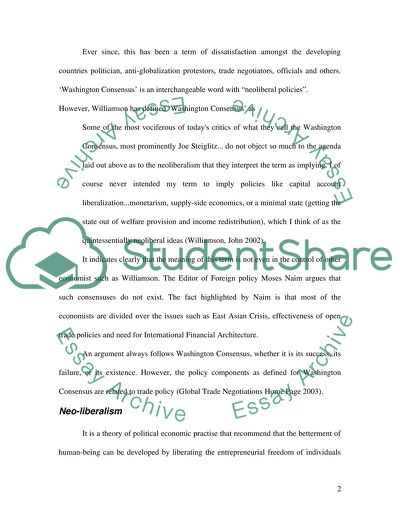Cite this document
(“The Liberal Values of Washington Consensuses Term Paper”, n.d.)
The Liberal Values of Washington Consensuses Term Paper. Retrieved from https://studentshare.org/politics/1522433-washington-consensus-essay
The Liberal Values of Washington Consensuses Term Paper. Retrieved from https://studentshare.org/politics/1522433-washington-consensus-essay
(The Liberal Values of Washington Consensuses Term Paper)
The Liberal Values of Washington Consensuses Term Paper. https://studentshare.org/politics/1522433-washington-consensus-essay.
The Liberal Values of Washington Consensuses Term Paper. https://studentshare.org/politics/1522433-washington-consensus-essay.
“The Liberal Values of Washington Consensuses Term Paper”, n.d. https://studentshare.org/politics/1522433-washington-consensus-essay.


